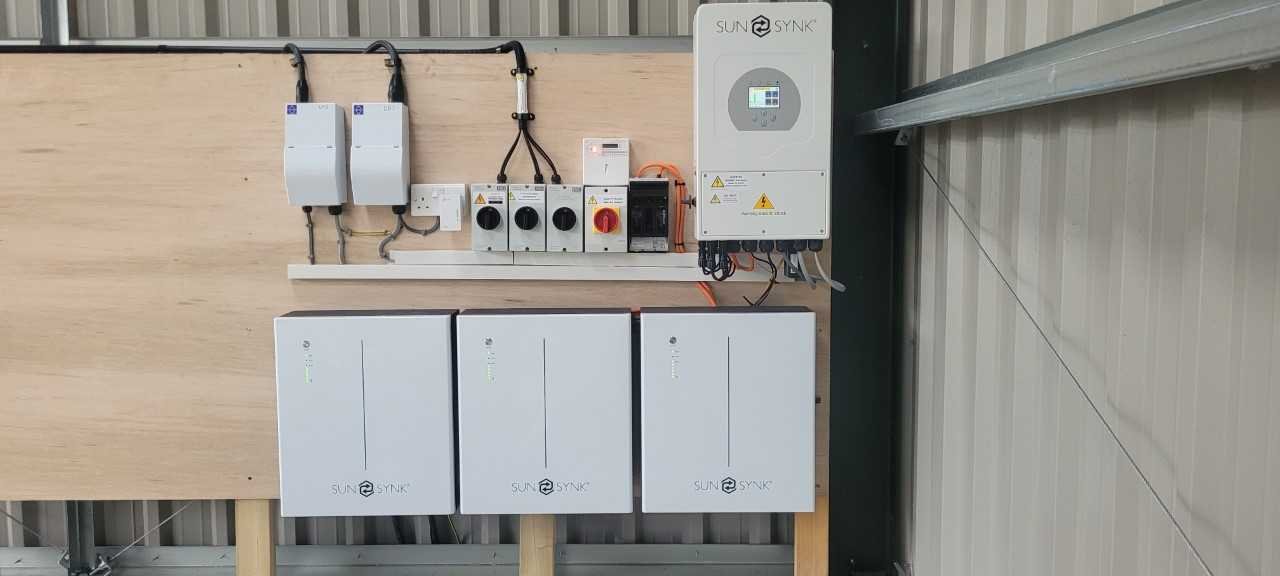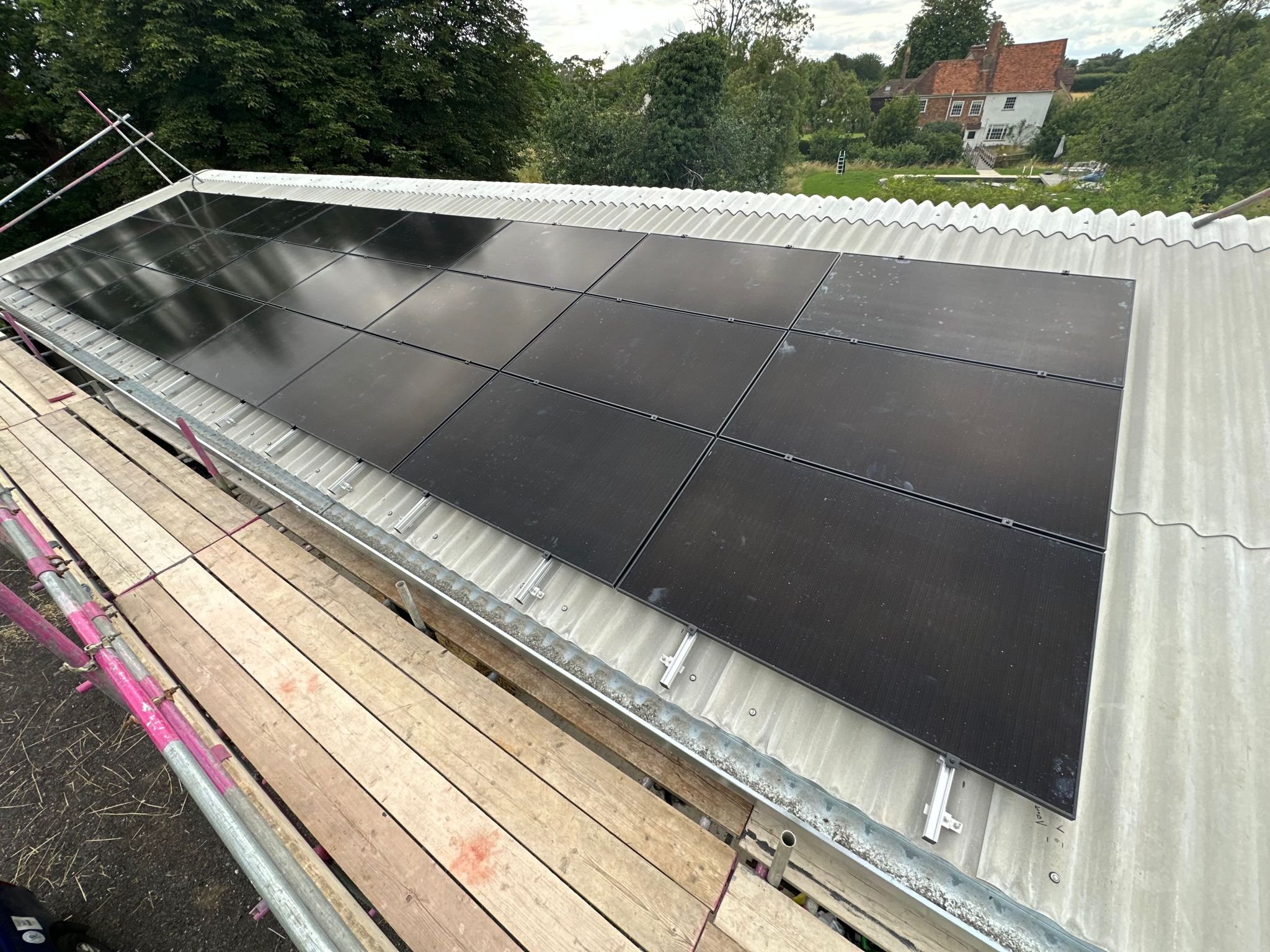What are solar inverters and which kind do you need?
A solar inverter is a crucial component of any solar panel system.
Inverters convert the direct current (DC) electricity generated by the panels into alternating current (AC) that can be used to power your home appliances and connect to the grid.
Without an inverter, you wouldn't be able to safely use the solar energy you generate.
Exploring Solar Inverters: Types, Function, and Selection
Have you ever wondered about the different types of solar inverters available in the UK, how they operate, and which one would be the ideal choice for your solar energy system? In this guide, we'll delve into the world of solar inverters, shedding light on their purpose and the factors to consider when selecting the right one for your needs.
Why Do You Need An Inverter For A Solar System?
Solar inverters play a crucial role in converting the electricity generated by solar panels, known as direct current (DC), into the alternating current (AC) used by household appliances and the National Grid. In essence, they bridge the gap between the energy harnessed from the sun and its utilization in homes and the broader electrical grid.
What exactly do solar inverters do?
However, the function of solar inverters extends beyond this basic conversion task. They perform several other roles, including:
Maximizing Power Output: Solar inverters are designed to optimize the power output of your solar panels, ensuring that you get the most energy from your system.
Communication with the National Grid: They establish a connection with the grid, enabling you to feed excess electricity back into the grid and even earn money through feed-in tariffs or similar programs.
Providing Feedback Information: Solar inverters offer valuable data on power production, allowing you to monitor the performance of your solar PV system.
Safety Assurance: Inverters play a crucial role in ensuring the safe operation of your solar panel system, protecting it from various electrical issues.
What Are the Main Types of Solar Inverters in the UK?
There are four primary types of solar inverters commonly used in the UK:
String Inverters (Central Inverters)
What are String Inverters? As their name implies, string inverters are designed to manage and convert the power generated by groups of solar panels, which are connected to the inverter via a series of strings. While they offer a cost-effective solution, they have limitations, including reduced performance in low light and shading conditions. String inverters also require a minimum number of solar panels to start generating power.
Microinverters
What Are String Inverters (Central Inverters)? Unlike string inverters, microinverters are attached to each individual solar panel within the system. This setup allows for the independent conversion of each panel's output, which can lead to improved energy production, system reliability, and simplified maintenance. Microinverters are particularly effective in areas with shading issues and offer long-term benefits, although they come with a higher upfront cost.
Hybrid Inverters
What Are Hybrid Inverters? Hybrid inverters combine the functions of a traditional solar inverter and a battery storage inverter into a single unit. They can store incoming energy as DC, convert it to AC, and send surplus power to a battery or the grid. This versatility is valuable for homeowners looking to install solar panels with energy storage. However, hybrid inverters tend to be more expensive compared to string inverters.
Power Inverters (Optimizers)
What are Power Inverters? Power inverters, also known as power optimizers, operate similarly to microinverters in that each solar panel has its own optimizer. However, the DC current generated by the panels is not converted locally but instead transferred to a central string inverter. Power inverters offer a cost-effective alternative to microinverters and limit the impact of shading on overall power output. Their warranties, however, are generally not as generous as those of microinverters.
Do I Need An Inverter To Use A Battery?
Yes, to use a battery in combination with your solar panels, you will need a hybrid inverter.
If you don’t want a battery, you can use a standard AC inverter, but keep in mind you won’t be able to add a battery to an AC inverter down the line.
How Do I Choose the Right Solar Inverter?
Selecting the most suitable solar inverter for your system involves considering various factors, including your budget, project goals, system size, panel type, and whether your system is grid-tied or off-grid. Here are some key points to keep in mind:
Budget: Your budget plays a crucial role in determining the type of inverter you can afford. Microinverters and hybrid inverters tend to be more expensive upfront, while string inverters and power inverters offer cost-effective options.
System Size: Ensure that the inverter's capacity aligns with your solar array's maximum power output, typically slightly below it. Oversizing inverters is unnecessary and can shorten the life of battery storage.
Warranty: Consider the warranty offered with the inverter type. Microinverters typically come with longer warranties, offering greater peace of mind.
Energy Storage: If you plan to incorporate energy storage, a hybrid inverter is an ideal choice as it can efficiently manage both the conversion of energy and its storage.
System Reliability: Microinverters and power optimizers are known for their redundancy, which enhances system reliability. Consider this if reliability is a top priority.
How Long Do Solar Inverters Last?
The lifespan of a solar inverter varies by type:
Traditional String Inverters: These last about 10 years with warranties of 10 to 12 years. After this, you might need to replace them.
Microinverters: These cost more upfront but can last around 25 years and often have 25-year warranties. They're a reliable choice, and you may not need to replace them during the system's lifetime.
In a 25-year span, traditional string inverters may need replacing twice, costing around £1000-£2000 each time. Microinverters are likely to save you money in the long run by maximizing your system's power output and allowing you to sell more energy.
Remember, it's essential to use the right-sized microinverter to maintain the warranty.
In Conclusion
In conclusion, the selection of the right solar inverter for your UK solar installation depends on your unique circumstances, preferences, and budget. By understanding the various types of inverters and their functions, you can make an informed choice that aligns with your energy needs and goals, ensuring a successful and efficient solar panel system for your home.
Here are some frequently asked questions about solar inverters:
-
A solar inverter is an electronic device that converts the direct current (DC) electricity produced by solar panels into alternating current (AC) electricity that can be used in homes or businesses.
-
A solar inverter is necessary because most electrical devices in homes or businesses require AC electricity to operate, while solar panels generate DC electricity. The inverter converts the DC electricity into usable AC electricity.
-
To select the right size of solar inverter for your solar panel system, you need to consider two key factors: the maximum power output of your solar panels and the maximum power rating of the inverter. The inverter you choose should have a maximum power rating that is equal to or greater than the total maximum power output of your solar panels.
-
The lifespan of solar inverters varies depending on several factors, such as the quality of the equipment, usage patterns, and environmental conditions. Generally, a good-quality solar inverter can last between 10 and 15 years.
-
It is generally recommended to hire a professional installer to install a solar inverter. Installing a solar inverter involves working with high voltage electricity, and if done improperly, it can be dangerous and even result in damage to the inverter or your solar panel system. Additionally, many solar inverter manufacturers require professional installation in order to maintain the warranty.
-
Monitor the performance: Keep an eye on the performance of your solar system. If you notice any sudden changes or fluctuations in energy output, it could indicate an issue with the inverter. Check your inverters manual/guide to troubleshoot any error codes.
How To Know Which Inverter You Need
Choosing the right inverter is important to ensure maximum efficiency for your solar panel system. Inverters are responsible for converting DC to AC, maximizing power output, communicating with the grid, providing feedback on energy production, and ensuring the safe operation of your system.
Types of solar inverter:
There are several types of solar inverters, including:
string inverters - the most common inverter, which can handle multiple strings of panels, however their output is affected by shading on panels
micro-inverters - more expensive than string inverters, however, they will still allow panels to generate energy even if they are partly shaded
hybrid inverters - the only type of inverter that will allow you to store energy in a battery as well as use power from your panels
optimizers - small additions to your system that improve the performance of your panels




